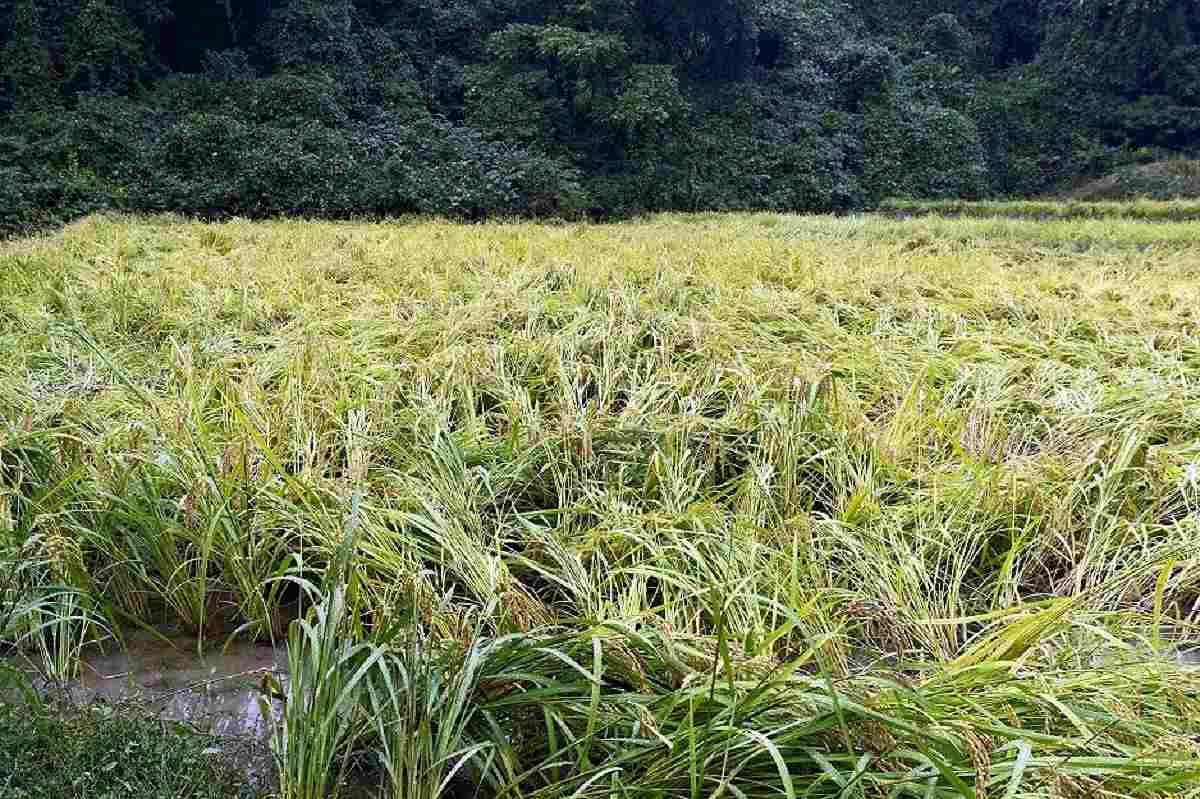October 17, 2025
MORIOKA – After retiring from her 39-year career as a nurse, Atsuko Umenai, 67, chose to make a new life for herself as a hunter.
As the only female hunter in the town of Hirono, Iwate Prefecture, she supports farmers suffering from damages caused by animals, such as deer and wild boars, and has become indispensable for the town’s wildlife damage control. Her desire to help people remains unchanged from her nursing days and is a driving force behind her new career.
Mother’s fields devastated
Umenai hit a turning point in spring 2020. A year after retirement, she was enjoying daily life, working the fields with her 88-year-old mother.
Their potato field was ruined overnight. She saw her mother’s despair and thought, “I want to know what did this.” The damage strongly suggested it was done by wild boars, and she learned that the fields of local farmers had been suffering from damage caused by wildlife.
Faced with a shortage of hunters in the area, Umenai thought “I’ll have to do it myself.”
She obtained a trap hunting license in 2021 and “the first type of gun hunting license” in the following year. In about 3½ years, she culled a total of 246 deer and wild boars that had been damaging fields. Her capture count of 70 last fiscal year placed Umenai for the first time at the top of the 19-member unit in the Kuji regional hunting association she belongs to.

A feed rice paddy damaged by wild boars on Sept. 25 in Hirono, Iwate Prefecture. PHOTO: THE YOMIURI SHIMBUN
Not wasting lives
Behind her success lies the keen observational skills honed during her time working at Aomori Rosai Hospital in Hachinohe, Aomori Prefecture.
Her experience in the hospital, where she never missed even the slightest change in a patient, directly links to her ability to read animal tracks and other signs.
“I’ve learned to identify the type of animal and the time it came through by looking at the way the soil is disturbed or the grass is flattened,” she said.
Hunting in the mountains goes hand in hand with danger. In March, while pursuing a wild boar, she wrestled with it barehanded for over 10 minutes, grabbing both ears and pinning its neck with her leg.
This doesn’t mean she has no hesitation to shoot. When she has to kill, Umenai strives to do so with a single shot to minimize the animal’s suffering. Studying anatomy and precisely locating organs comes with the territory of her experience as a medical professional. She had repeatedly confronted the precious nature of life as a nurse.
During winter, when meat does not spoil so quickly, she gives out game meat to residents who request it. Her husband, Toshiaki, 69, is skilled with his hands and makes handicrafts from the tusks and horns. She believes minimizing waste is a way of showing respect for the life taken.
Indispensable to town
The number of wild boar captures in Hirono surged from five in fiscal 2018 to 73 in fiscal 2024. The number of captured deer reached 353 in fiscal 2024. Umenai plays an important role and “Farmers go directly to her when troubled,” said Naoaki Hayashishita, 47, of the town government. “She’s indispensable to the town.”
As a hunter, she sometimes hears comments such as those saying the animals are in a “pitiable” situation. However, farmers lose a year’s worth of hard work in an instant if their fields are ravaged.
She believes hunting and killing animals is necessary management to protect the livelihoods of the townspeople.
Every morning, Umenai gets in her light truck to patrol about 20 traps set near fields.
“All my hardships are just blown away when I’m thanked by farmers,” she said.
She continues walking mountain trails, engaging in her mission to protect crops while thinking about how precious life is.

